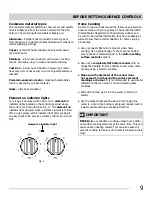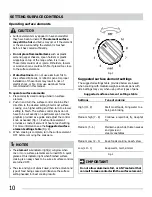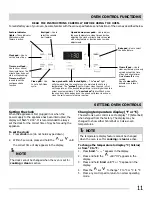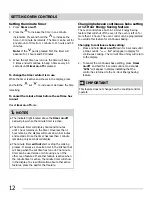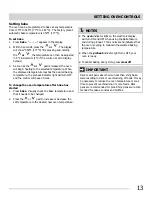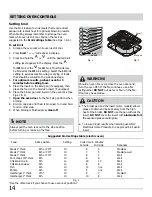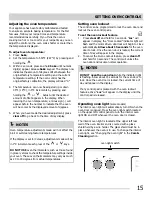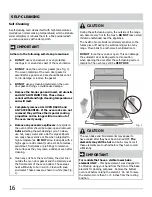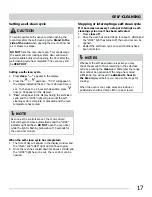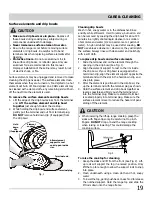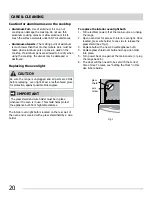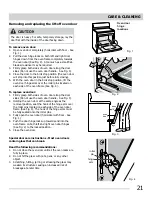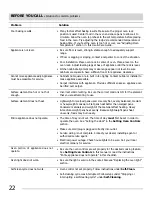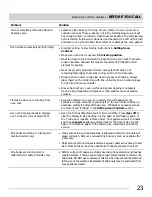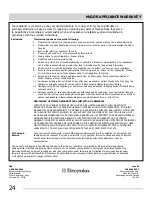
23
Oven smokes excessively during broiling.
• Incorrect setting. Follow broiling instructions in
Setting Oven
Controls
.
• Make sure oven door is opened to
broil stop position.
• Meat too close to the broil element. Reposition the oven rack to provide
proper clearance between the meat & the element. Preheat the broil
element for searing.
• Meat not properly prepared. Remove excess fat from meat. Cut
remaining fatty edges to prevent curling, but do not cut into lean.
• Broiler pan and insert wrong side up and grease not draining. Always
place insert on the broiler pan with ribs up & slots down to allow grease
to drip into pan (some models).
• Grease has built up on oven surfaces. Regular cleaning is necessary
when broiling frequently. Old grease or food spatters cause excessive
smoking.
Flames inside oven or smoking from
oven vent.
• Excessive spillovers in oven. For example this will happen for pie
spillovers or large amounts of grease left on the oven bottom. Wipe up
excessive spillovers before starting oven. If flames or excessive smoke
are present see “Broiling” in the
Setting Oven Controls
section.
Oven control panel beeps & displays
any F code error (for example F30).
• Oven control has detected a fault or error condition. Press
clear off
to
clear the display & stop beeping. Try the bake or broil feature again. If
the F code error repeats, remove power from appliance, wait 5 minutes
and then
repower
appliance and set clock for the time of day. Try the
bake or broil feature again. If the fault recurs, record fault and call for
service.
Problem
Solution
Soil not completely removed after self-
cleaning cycle.
• Failure to clean bottom, front top of oven, frame of oven or door area
outside oven seal. These areas are not in the self-cleaning area, but get
hot enough to burn on residue. Clean these areas before the self-cleaning
cycle is started. Burned-on residue can be cleaned with a stiff nylon brush
and water or a nylon scrubber. Be careful not to damage the oven gasket.
Drip bowls are turning color or
distorted (coil cooktop models only).
• Bottom surface of cookware extends beyond surface element and touches
cooktop surface. This can cause high enough temperatures to discolor the
drip bowls. DO NOT use cookware of this type. Pan sizes should be matched
to the size of the element. Replacement drip bowls may be purchased from
your appliance dealer.
Drip bowls are pitting or rusting (coil
cooktop models only).
• Foods with acids, such as tomatoes, if allowed to stand in/on bowls will
cause corrosiion. Remove and wash drip bowls as soon as possible after
a spill over.
• Normal environment. Houses located along sea coasts are exposed to salt
air. Protect bowls as much as possible from direct exposure to salt air.
Solutions to common problems
•
BEFORE YOU CALL

